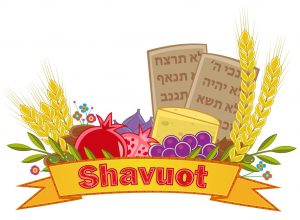In Judaism, the year is structure follows the Hebrew lunar calendar, which starts from September with the Jewish New Year, i.e. Rosh Hashana. In Israel, the three Jewish festivals whose celebrations take place following the Bible prescriptions. In particular, the observance of the festivals of Pesach (Passover), Shavuot, and Sukkot with Simchat Torah occurs in seven, one and eight days, respectively. Every Jewish holiday starts at sundown in the evening before the official holiday day.
All The Jewish Holidays
Shabbat
Shabbat is the principal Jewish holiday that is constantly present every week in Jewish life. Shabbat starts at Friday’s sundown, and it ends on Saturday’s evening. There is a special preparation of the food on Thursdays since it is forbidden to cook on Shabbat. It is not permitted to switch on and off any electric and electronic device. Additionally, using the phone, touching money, and writing are other forbidden activities. On Shabbat, it is highly encouraged not to take any photo of Jewish holy places such as the Kotel, i.e. the Western Wall in Jerusalem. On this day, kosher restaurants are closed; nevertheless, there are nonkosher dining rooms and coffee shops outside Jerusalem. It is a fantastic experience to visit nature reserves and parks.

Rosh Hashanah
Rosh Hashanah is the Jewish New Year whose celebration takes place in September every year of the Jewish calendar. It is a two-day holiday, and it is also named High Holy Day Holiday like Yom Kippur. The ten-day period before Rosh Hashanah is days of repentance for Jewish people. Moreover, it is customary to attend a long service in synagogue and eat a celebratory meal including honey and apples. The observance and celebration of Rosh Hashanah are common among both religious and non-religious Jews.

Yom Kippur
Yom Kippur is the Day of Atonement and one of the holiest festivals in the Jewish calendar. Indeed, it is a very solemn day, and religious Jews wear white clothes and non-leather shoes. Most of the eateries, coffee shops, shops, entertainment places are closed. And in most of the cities, the streets are empty. Observant Jews spend the day praying in the synagogue and completely fasting for a day.
It is the day when Jews ask for forgiveness for their sins, repenting.
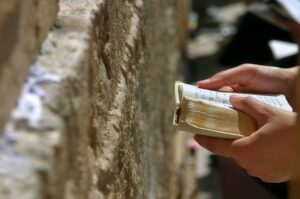
Sukkot
Sukkot is the Feast of Tabernacles that usually takes place in October. It is customary to build a sukkah, an open-roof shelter built in backyards, terraces, porches. Most religious Jews eat their meals in the sukkah. It is a way to remember the lodgings of the Israelites in the desert.

Simchat Torah
Simchat Torah takes place on the last day of the Sukkot festival; this holiday remarks the end—and the immediate beginning—of the annual cycle of reading the Torah, the Five Books of Moses. The celebration includes joyful singing and dancing at home and in the street since people bring the Torah scrolls around.

Hanukkah
Hannukkah festival celebration takes place in December, commemorating the Jewish rebellion in the 2nd century BC when the Jews restored their control of Jerusalem. According to tradition, an olive oil ampoule containing enough oil to burn for a day remained in the Temple. The olive oil was miraculously burned for eight days; therefore, the festival is an eight-day holiday characterised by the lighting of an increasing number of candles on the hanukkiah candelabrum each night. Schools get a winter break, but shops, businesses, and services remain open.
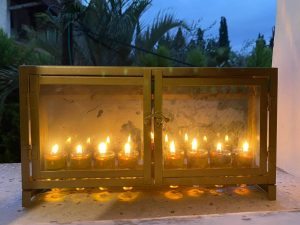
Purim
Purim festival is a unique festival and one of the most important in Judaism. Adults and children dress up wearing costumes during the days of Purim. In the synagogues and on public television, observant Jews read the Scroll of Esther, which tells the story of the brave Jewish queen who stopped the massacre of the Jewish Nation in ancient Persia. On Purim day, it’s customary to exchange gifts consisting of food and drinks among friends and strangers. Many towns organise street celebrations.
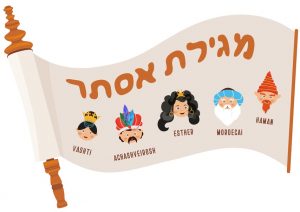
Pesach
Pesach or Passover is a significant Jewish festival with dietary restrictions during the seven days. Before Pesach, it is customary for Jews to do a spring-cleaning to remove all traces of leavened bread and similar products from the house. During the seven-day holiday, no Jewish store sells bread. On the first evening of the Pesach, Jewish families meet to recount the biblical story of the Jewish nation exodus after many years of
Egyptian servitude. The celebration takes place eating a festive and symbolic meal: the Pesach seder (seder means order). Hotels organise communal seders.
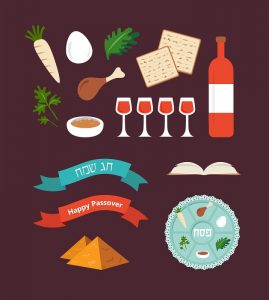
Yom Ha’atzma’ut – Israel Independence Day
Yom Ha’atzma’ut is the Israel Independence Day, which commemorates Israel independence declaration on May 14, 1948. Every year in Israel, many gala events, fireworks, and military parades occur all over the country. Even though most of the stores are closed, public transportation work and many tourist sites are open.

Shavuot
Shavuot is the Feast of Weeks, and it is a religious festival. This holiday occurs seven weeks after Passover. It marks the harvest of the first fruits and, according to the Torah, i.e. the Jewish Bible, it commemorates the day Moses received the Torah on Mount Sinai. It’s conventional to consume dairy foods.
